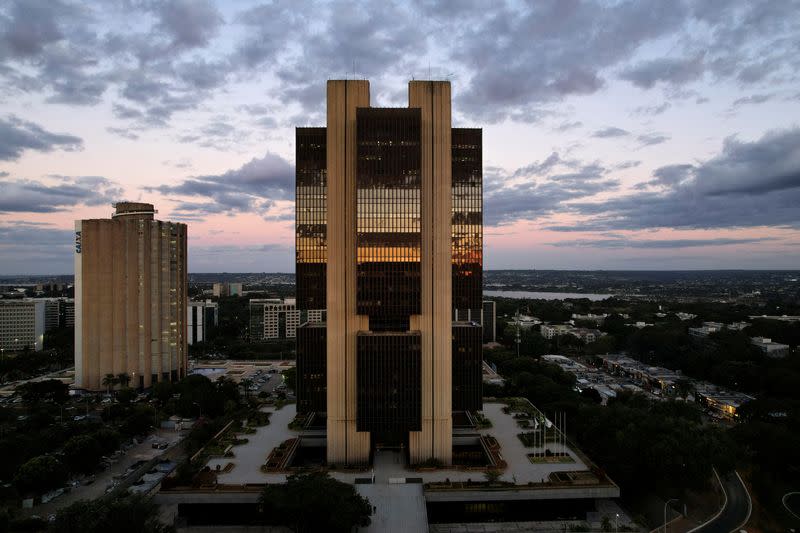Brazil senate committee postpones vote on central bank financial autonomy

By Marcela Ayres
BRASILIA (Reuters) -Brazil's Senate Constitution and Justice Committee postponed for a week voting on a constitutional amendment proposal granting the central bank financial autonomy, it said on Wednesday, to allow time to draft a new consensus text.
The decision followed a suggestion by Senator Jaques Wagner, the government leader in the Upper House.
After attending a meeting with Finance Minister Fernando Haddad earlier on Wednesday, Wagner said the government agreed with granting financial autonomy to the monetary authority but did not support turning the institution into a public company, as proposed in the original draft.
Brazil's Congress granted the central bank operational autonomy in 2021, separating the central bank governor's term from that of the country's president. Financial autonomy would give the bank additional independence from the executive.
Since taking office in January 2023, President Luiz Inacio Lula da Silva has expressed discomfort with working with a monetary policy chief appointed by his predecessor, Jair Bolsonaro.
Governor Roberto Campos Neto has publicly defended financial autonomy as a necessary step for the central bank to have its own budget, allowing it to improve staffing and address technological challenges.
Lula's administration reinforced opposition to the proposal in a document distributed to senators on Wednesday morning.
Among the eight main risks outlined in the document, obtained by Reuters, the primary concern was that the constitutional amendment would jeopardize compliance with fiscal rules, as it would impose a primary expenditure of 125 billion reais ($23.06 billion) on the federal government next year.
This projected negative outcome for the central bank in 2025 currently falls under Treasury coverage as a financial expense, which does not impact the government's primary fiscal targets.
However, this would change if the central bank were transformed into a public corporation, as proposed. According to the government, fiscal rules stipulate that dividends and capitalizations of companies, even financial ones, constitute primary flows.
Negative central bank results mainly arise from its foreign exchange operations, which are affected by swap contracts and fluctuations in Brazil's international reserves.
($1 = 5.4200 reais)
(Reporting by Marcela Ayres; Editing by Josie Kao and Rod Nickel)

 Yahoo Finance
Yahoo Finance 